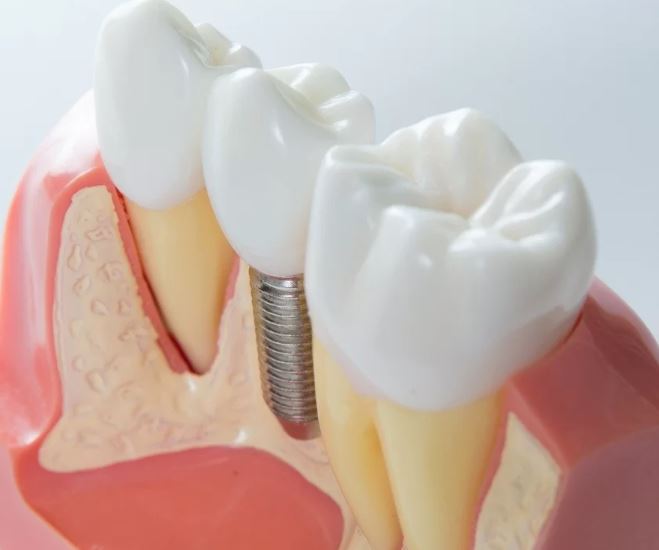Premium Link-Building Services
Explore premium link-building options to boost your online visibility.
Explore premium link-building options to boost your online visibility.
Taking care of your teeth is not just about having a bright smile – it’s about maintaining your overall health. While regular dentist visits are essential for professional cleanings and checkups, daily habits play a crucial role in keeping your teeth and gums healthy. Proper oral hygiene between appointments can help prevent cavities, gum disease, and other dental problems that could lead to more serious health issues.

Neglecting your dental health between visits can result in plaque buildup, bad breath, and even tooth loss over time. The good news? With consistent care and the right techniques, you can keep your teeth in excellent condition until your next dental appointment.
This article will guide you through the best practices to maintain healthy teeth and gums between dentist visits.
Brushing your teeth is the cornerstone of good oral hygiene. It removes food particles, plaque, and bacteria that accumulate throughout the day. However, simply brushing isn’t enough – it’s important to do it correctly.
Brushing twice a day – in the morning and before bed – helps keep your teeth clean and fresh.
Flossing is often overlooked, yet it is just as important as brushing. Flossing removes food particles and plaque from between your teeth and along the gumline – areas that your toothbrush can’t reach.
If traditional floss is difficult to use, try floss picks or a water flosser, which are easier for some people to handle.
Mouthwash is an excellent addition to your daily oral hygiene routine. It helps reduce bacteria, freshen your breath, and reach areas that brushing and flossing might miss.
Use mouthwash once or twice a day after brushing and flossing for best results.
Your diet plays a significant role in your dental health. The foods and drinks you consume can either strengthen your teeth or contribute to decay.
Maintaining a balanced diet not only improves your overall health but also keeps your teeth strong and cavity-free.
Fluoride is a mineral that helps strengthen tooth enamel and prevents decay. Many toothpaste brands and mouthwashes contain fluoride, but you can also get it from other sources.
Fluoride is especially important for children, as their developing teeth benefit greatly from this natural mineral.
Frequent snacking, especially on sugary or starchy foods, increases the risk of cavities. Every time you eat, the bacteria in your mouth produce acids that attack your enamel.
Limiting snacking gives your teeth time to recover from acid attacks and reduces the chances of decay.
Your teeth are designed for chewing food – not for opening packages, biting your nails, or cracking nuts. Misusing your teeth can lead to chips, cracks, or other damage.
Taking care of your teeth mechanically is just as important as keeping them clean.
Saliva plays a critical role in oral health by neutralizing acids and washing away food particles. Staying hydrated helps your body produce enough saliva to protect your teeth.
Even with the best care, dental issues can arise. Paying attention to early signs of problems can help you address them before they worsen.
If you notice any of these signs, schedule an appointment with your dentist as soon as possible. Early intervention can prevent more serious problems down the line.
While this article focuses on taking care of your teeth between visits, it’s essential to emphasize the importance of regular dental checkups. Professional cleanings remove tartar that can’t be removed at home, and your dentist can identify potential issues early.
Your dentist is your partner in maintaining oral health, so make sure to follow their advice.
Taking care of your teeth isn’t about one big effort – it’s about small, consistent habits that you practice every day. By brushing, flossing, eating a healthy diet, and protecting your teeth, you can keep your smile healthy and bright between dentist visits.
You should floss at least once a day, ideally before bedtime.
Mouthwash is a great addition to your routine but doesn’t replace flossing. Flossing removes debris and plaque from between teeth, where mouthwash can’t reach.
Switch to a toothpaste designed for sensitive teeth, and avoid extremely hot, cold, or sugary foods. Consult your dentist for further advice.
Yes, but avoid overbrushing, as it can damage enamel and irritate gums. Stick to gentle, thorough brushing.
By following these tips and maintaining good habits, you’ll not only keep your teeth healthy but also reduce the need for costly dental procedures in the future. Start taking care of your teeth today, and smile confidently tomorrow!
1. Focus on high-quality, relevant backlinks over quantity.
2. Leverage AI tools for smarter link-building strategies.
3. Content-driven approaches are key to attracting links.
4. Adhere to ethical and transparent practices.
5. Utilize advanced analytics for optimizing campaigns.
Explore premium link-building options to boost your online visibility.